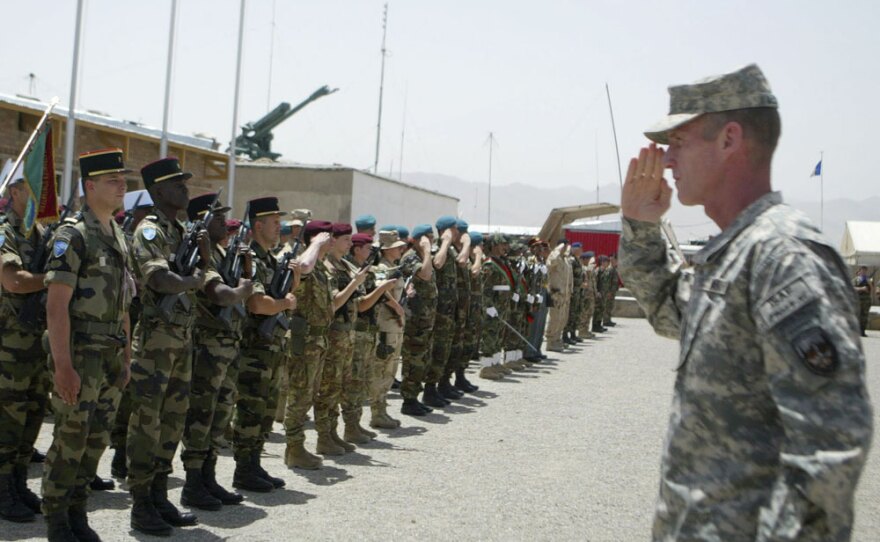Gen. Stanley McChrystal, the U.S. commander of coalition forces in Afghanistan, says the international community will need to work with the Afghan government to help develop the rule of law — and with the country's justice system to punish drug traffickers who are financing the Taliban insurgency.
"Just arresting someone isn't the entire process. It's the entire cycle of, can we have a fair trial? Can we have appropriate incarceration or punishment? We're committed to supporting that process," McChrystal says during the second part of an interview with Renee Montagne.
He also stresses that ongoing military operations in Afghanistan's volatile Helmand province should not be viewed as solely a counter-narcotics effort, although the U.S. ability to be present in this Taliban stronghold will have an impact on poppy production by "literally being astride it and offering farmers a chance to go to licit crops and get them to market."
McChrystal says he believes this will be a "significant indicator" to Afghans of the inevitability of the move away from growing the poppies that fuel the opiate trade, though he admits it will take a long time.
The military also is targeting the connection between drug traffickers and the Taliban insurgency they are funding.
"Going after the farmer is not the way to do this because the farmer doesn't get rich in the deal. [If the farmer] can grow wheat and get it to market, he'll do fine. If he grows poppies, the reason he's done that is that he's been forced to or he got help to get that product to market when he couldn't get other licit crops to market," McChrystal explains.
If those drug kingpins are caught, it's important to bring them to justice within the Afghan legal system, he adds.
"There have been some cases where there has been extradition of one or two people to America. But I think inside Afghanistan is where the development of the rule of law and the justice system needs the partnership of the international community to make that work better," he says.
Copyright 2022 NPR. To see more, visit https://www.npr.org. 9(MDAzMjM2NDYzMDEyMzc1Njk5NjAxNzY3OQ001))






